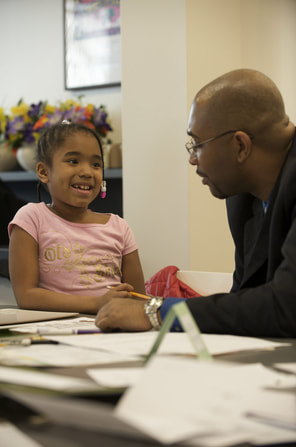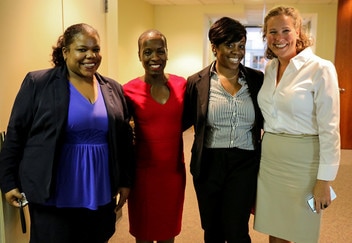 “The power of a caring relationship.” Those words jumped off the screen, as I read a message from someone from my past, a lovely woman who greatly inspired me when I was a child. Sometimes, things we know so well sound like fresh revelation when we hear them stated so simply, so succinctly, and, especially, when we’re least expecting. As I read those words, they resounded in my soul: “The power of a caring relationship.” “The power of a caring relationship.” “The power of a caring relationship.” It then occurred to me that caring relationships are the best ones to have, not just because one person cares about another but because that care contains a very special power, but a power that is, unfortunately, so easily overlooked. We don’t always realize and appreciate what the power of caring can do. It can encourage and inspire. It can produce change and can transform a life. Think about people you know or have heard of who have achieved great things because an elementary or middle school teacher encouraged them to believe in themselves and to reach for the stars, and they did. What about an all-star athlete who considered giving up on sports but didn’t because a high school coach not only showed interest in their athletic abilities but showed genuine interest in their academic and personal life. Then, there are parents and the power of their care in the lives of their children. My husband and I often talk with each other and also with friends about the balance between doing things that truly help our children versus things that hinder them from becoming able, mature, and responsible adults. How much help is too much? How little is too little? When is “help” not really help at all? All children are not the same, and parents have to answer these questions for themselves based on what they know about their children, but regardless of the differences, one thing remains the same: children need the eyes, ears, minds, and hearts of their parents. So parents, care for your children as much as you can and give them as much help as you believe they need to help them move forward in life. This world can be very hard, very bitter, very cold, brutal, and cruel, but there’s no limit to what children can accomplish with the power of their parents’ care that found, ground, and fuel their lives. What’s great about the power of caring is that it’s universal. Caring relationships are needed in every arena: home, work, in business, education, in politics, in government, entertainment, and sports. No segment of society is exempt. In a climate where some of the most disturbing and heinous acts happen in office settings and places of business, some still say there’s no place for love, care, and compassion in the workplace and to leave those emotions and soft skills at home. We commonly measure success by money, fame, and prestige, but what’s often behind success are loving and caring relationships that fuel that success. And even though people become successful without always having that fuel of love and care, all too often we feel the adverse effects somewhere in the marketplace of what we perceive as the lack of love and care in the lives of successful people because even though they’re successful, we all know of successful people who are believed to not be all that nice. Here’s an example: embattled pharmaceuticals executive, Martin Shkreli, who was recently sentenced to seven years in prison for defrauding investors. Before being convicted of securities fraud, Shkreli, described as the “most hated man in America,” became known for his 5500% price hike on Daraprim, a life-saving drug used to treat HIV. During sentencing, Shkreli’s lawyers described him as, “kind, caring, and generous.” Yet, public opinion couldn’t quite reconcile a price increase from $13.50 to $750 on this life-saving drug with kindness, care, and generosity, and led many to characterize Shkreli’s actions as inhumane. As we consider Shkreli, the product of a “lonely and abusuve childhood,” who later “alienated people close to him,” we can’t help but correlate what appears to, perhaps, be a lack of loving and caring relationships in his life with what played out publicly over the past few years. The power of caring relationships! I could go on with stories and examples that bring this exponential power more and more into the light. Instead, let’s go on and on together and commit to using our collective and transformative power of care to encourage and inspire others to believe in themselves, to make any necessary changes in who and what they are, and to pursue and achieve their greatness. Sometimes, all it takes is a decision and a seed: our decision to sow a seed of care into the life of someone we know. Since seed produces after its own kind, we can expect the seeds of care that we sow into the lives of others to produce a harvest and more seeds of care that they can then sow into the lives of those they know. Then, there will be even more harvest and seeds of care to sow, all because of the exponential power inherent within a caring relationship.
0 Comments
 If you are married and are experiencing conflict in your marriage, have you ever considered that God may have a purpose in it? While God may not have caused whatever differences or disagreements that have been dividing and hindering you and your spouse, there’s no question that He wants to use whatever differences and disagreements that have been dividing and hindering the two of you, and He wants to use them for a purpose. And if you are one who happens to believes that God’s purposes, even if you don’t fully understand how, always and ultimately, in some way and somehow lead to something good, then it only follows that He wants to bring about something good from whatever conflicts you and your spouse experience. Marriage can be wrought with conflict, friction, and tension—so much conflict, friction, and tension greater than what a marriage can bear. That’s often why marriages fall apart and couples divorce. But does it always have to be that way? Do unbearable differences and disagreements that splinter husbands and wives have to end in death—the death of the marriage? Or is there, perhaps, another way of looking at and handling these splinters? As painful, as frustrating, and as stifling as marital discord can be, the road to resolve, healing, recovery, and peace may start with a change in perspective—changing how you see whatever disharmony your marriage may be experiencing. Maybe, just maybe, instead looking at conflict through your own lens—the lens you’ve become accustomed to, adopt a new lens—the lens that God uses, so that you begin to see conflict from His point of view. God wants to use it, and He wants to use it for a purpose—a good purpose. So, it only makes sense to, at least, try to see it the way He sees it so that you can see and hopefully receive the benefits of the purposes He wants to bring about. Let’s look at two common disagreements that divide and hinder couples: 1—The good, ole, “What do you want to eat for dinner?” disagreement that, for many couples, routinely ends with no dinner at all because by the time they finish arguing about who decided last time and whose turn it is now to decide, neither one is no longer hungry. Now, that couple may see this as one more instance, added to many, where they just can’t agree on something as simple as what to eat for dinner. And in many respects, that may be true: they just can’t seem to agree, yet again, on something as simple as what to eat. But if it’s really that simple, why can’t they agree? Maybe the fact that they cannot agree on something so seemingly simple to the point where their disagreement escalates to where they’re not eating dinner at all and may even stop speaking to each other for a while is an indicator that something else that’s not so simple is really going on. Maybe what’s really going on has very little or nothing to do with what to eat but more to do with control and domination. In spite of the question, “What do you want to eat for dinner?” maybe the wife feels like she never gets to have what she really enjoys and that, somehow, they always end up eating what the husband wants. 2—The other ole, “Where are we going to spend the holidays?” While some couples establish patterns and traditions that both spouses are happy with, other couples end up in a feud year after year. One spouse (or possibly both) wants to spend every holiday with their side of the family and no holiday with the other’s side. Then, what ends up happening? You know what happens: they each go separately to their own side of the family; they both go together to one (or each) side of the family, but one spouse (or each) goes disgruntled; or neither spouse goes anywhere, and they stay home angry (not to mention, hungry) and not talking to each other. Again, this may have less to do with where to spend the holidays, but more to do with selfishness and self-centeredness. Maybe the husband feels like his wife is overly-attached to and only wants to spend time with her family and doesn’t value and leaves no room for his family at all. So, what do these scenarios have to do with God and how He may be using them? What’s the new perspective that I’m encouraging you to adopt to see these scenarios from His point of view? Here’s what I’m asking you to do. When conflict occurs, as uncomfortable, as upset, and as angry as you may become, I want you to start paying close attention to what the conflict brings to the surface and exposes out in the open that may, otherwise, have not been revealed if the conflict never occurred. Not only am I asking you to pay attention to what the conflict exposes; I am asking you to pay close attention, specifically, to what the conflict brings to the surface and exposes to you about you! Never mind what the conflict may expose or reveal about your husband or your wife. Make yourself the center of your attention and focus on what God is trying to tell you about you—perhaps, that you’re overly-controlling and dominating like the husband in our “What to eat for dinner”; or maybe that you are selfish and self-centered like the wife on our “Where to spend the holidays.” Extreme control, dominance, selfishness, self-centeredness, and so many other issues that conflict brings to the surface tear marriages apart everyday, and too often, married couples never really get to the bottom of what the true, underlying issues really are. So, because God is always working to, ultimately, bring about good, it’s very likely, when your marital conflicts occur, that God is trying to help you save your marriage by bringing to the surface and showing you things about you—things you may not, otherwise, realize--that may be tearing your marriage apart. So, instead of seeing conflict for all the negative that it often brings about, I encourage and even challenge you to see conflict as something God uses to show you things, particularly things about you, that may be detrimental to your marriage (and to your relationships, in general) so that you can be aware of and work on whatever He shows you. As you enter the New Year, I encourage you and I even challenge you to take on a new perspective, a new lens, a new way of looking at conflict. I challenge you to start paying close attention to what God is showing you about you when conflict occurs and to start working on whatever He shows you because whatever it is, it might just save your marriage, and whenever a marriage can truly be saved, healed, and restored in peace, that’s a real good thing.  Recently, I saw one more social media post—one more added to many—encouraging readers to walk away from certain types of people and to end certain types of relationships. You know how they go: “If someone is robbing you of your joy and happiness, they must be removed”; “Walk away from people who disrupt your peace of mind, self-worth, and self-respect”; “Maturity is learning how to walk away from high-maintenance relationships that drain you”; “Strength is being able to let go of relationships that create mental, emotional, and spiritual strains on your life.” Whenever I see these types of posts, the same questions always come to mind: What if you can’t walk away? What if you shouldn’t walk away? What if you decide to not walk away because you realize there’s more to gain by staying and standing your ground? Cutting people off and walking away from relationships shouldn’t be our automatic go-to when a relationship starts going or has gone south. In fact, true strength and maturity are often cultivated and exhibited by not walking away, in spite of how challenged and threatened our joy, happiness, peace, self-worth, and self-respect may be; in spite of how high the maintenance may be and how drained we may feel in maintaining a relationship; and in spite of how much of a mental, emotional, and spiritual strain we may experience as a result. Am I saying we should accept disregard and disrespect from others just because they’re in relationship with us? Of course, not! Am I suggesting it’s okay for people in our lives to de-value who we are and disrupt or internal peace, joy, and happiness? Certainly, not! And am I advocating for mentally, emotionally, and spiritually expending ourselves endlessly and infinitely on relationships with no regard for healthy boundaries that exhaust us beyond our natural capacities and limitations? Absolutely, not! But what I am saying is that we, especially those of us in the practice of teaching, training, and coaching others in the area of relationships, have to do more qualifying and clarifying on how to effectively handle challenging, difficult, high-maintenance, and, even, toxic and unhealthy relationships. It’s an irresponsible dis-service for anyone who occupies a place or position of giving counsel and advice about relational matters to encourage people, without drilling down to the deeper recesses of their relationships, to just cut others off and walk away from relationships, even when there are justifications for doing so. Straining and draining relationships come in all sizes, shapes, and colors, so we can’t paint them all with broad-strokes. Husbands and wives; parents and children; siblings; friends; neighbors; colleagues; business partners; employers and employees. Difficult relationships exist in many forms, come in all flavors, and can show up anywhere. So, making it a habit of cutting off difficult people and abandoning relationships that get under our skin and unnerve us is a sure way to end up in, yet, another difficult relationship with another difficult person that, again, gets under our skin and unnerves us. I once worked with a woman who made my life miserable by undermining practically every fiber of dignity within me to a point, where everyday, I envisioned quitting and walking away. But my reality was that I couldn’t. I needed my job, so I couldn’t just cut her and the job off and just walk away. What I did do, though, was learn how to confront this woman and her misery—the misery I was allowing her to transfer into my life—stand my ground, not be miserable, and maintain my dignity. Consider the wife who’s demeaned and degraded by her husband; the child who’s demeaned and degraded by their parents (or vice versa); the brother or sister who’s demeaned and degraded by their siblings; or a friend who’s demeaned and degraded by a friend. Relationships can be complicated, and sometimes answers and solutions are not so cut-and-dry. Possibly, in each of these scenarios, the one demeaned and degraded, for whatever their reasons, can’t or shouldn’t or won’t walk away. Maybe they’ve weighed the potential costs and potential benefits on each side and have decided that they’re not going anywhere because the benefit of staying outweighs its cost as well as the costs and benefits of ending the relationship. Maybe they’ve decided to confront the issues, stand their ground, and expect positive outcomes. I firmly believe in knowing when an end in a relationship is necessary because sometimes, it is. But there’s something called “long-suffering”—a virtue—and maybe the wife, husband, child, parent, sibling, friend has decided to be just that because they love the person or the people they’re in relationship with and have decided they’re going to give it their all and will expect and won’t accept anything less than the best. Now, let me be clear: if a relationship places you or me in any kind of harm’s way, warranting any type of protective or law enforcement involvement or intervention, then, unquestionably, that’s the route we should take. And what I am not saying is that we should automatically stay in a relationship, regardless of its condition and effects, as long as it does not require protective or law enforcement involvement or intervention. My focus here is on those people and those relationships that we find to be challenging, difficult, high-maintenance, and even toxic and unhealthy. The reality is that as challenging, as difficult, as high-maintenance, and even as toxic and unhealthy as a person and a relationship may be, true growth and maturity, true strength and fortitude are developed by learning how to build ourselves up. They’re developed by building up our mental, emotional, and spiritual thresholds and muscles so that we can actually maintain our joy and happiness, our peace and sense of worth and respect, our values and our dignity regardless of how challenging and how difficult and how high-maintenance, toxic, unhealthy, straining, and draining a person and a relationship may be. Contrary to what we often hear, sometimes it requires more courage and more stamina for us to remain than it does for us to walk away. Maybe we need to set some much-needed boundaries, parameters, terms, and conditions to manage the relationship. And maybe it’s time to, once and for all, toughen up, confront the difficulties, and learn how to maintain our peace of mind in spite of difficult people and difficult relationships, because as much as we may not want to accept it, difficult people and relationships are everywhere. So, it’s best that we work on ourselves and build up our relational immune systems so that we are better equipped to handle people and relationships that challenge and threaten our peace, self-worth, self-respect, and dignity to the point where they are no real challenge or threat to us at all. Let’s not be so quick to walk away!  Mixing business and pleasure, personal and professional, money and friendship. Some say it's just not a good idea. But why? Why should we keep these things separate? I'm not so sure that we absolutely have to because doing business with and for people we know and have genuine relationships with can be a beautiful thing. Yet, when we do, things don't always turn out so beautifully, and there are numerous reasons why, but I'd like to look at this from one particular angle, an angle that I often call, "Can you help me out." I've spent a lot of time over the years observing, examining, and studying conflict, primarily because conflict exists in so many, if not all, areas of our lives. Its effects can be so rampant but, at the same time, so camouflaged, so subtle, and so easily ignored or dismissed. For the most part, many of us just don't like conflict, so we escape and avoid it at all costs, even if it means ignoring a "pink elephant" in the middle of a room screaming for attention. So, what in the world is the conflict I'm talking about that has to do with mixing business and pleasure, personal and professional, and money and friendship that I like to call the "Can you help me out" syndrome? It's that conflict that occurs when we decide to start a business or start selling some product or service and regardless of the fact that we haven't seen or spoken to certain people in over ten, fifteen, or twenty-plus years or maybe we see them regularly but never engage them in much or any conversation, but now, suddenly, we decide to reach out to spark or re-spark a relationship because we now want them to help us out by buying whatever product or service we're selling. Look, if we're in business, or even if we haven't officially launched a business, but maybe we've written a book, recorded a CD, or some of us may have started selling jewelry, or health and wellness products, or maybe we've decided to start providing personal or professional care services of some sort, it goes without saying that we're going to want people to know what we're doing so that, hopefully, they'll keep us in mind in the event they or someone they know ever needs what we're providing. But if we haven't taken time to genuinely build, maintain, and value relationships with the people we're now reaching out to for support, they may, likely, get a bit turned off if we're now in touch only because we want something from them. Back in the mid-'90s, my husband and I became involved with a business that, for purposes of simplicity, we'll describe as direct-sales. Of course, as with any business, but especially in this kind of business, in order to be successful, we had to get the word out to as many people as we could that we were now involved in this highly-popular business arrangement. We attended a lot of seminars, where we were trained on many aspects of how to do the business and how to do it well, and it all started with learning how to identify and initiate sales conversations with potential customers. As part of the training, we were instructed to make a list of everyone we knew--everyone! And to then call each one of those "everyones" and, essentially, ask them, "Hey, can you help me out?" Well, being true trainees, zealous and ambitious to succeed, we did our best to think of and reach out to every single person we knew so that we could initiate that much-needed conversation that started with, "Hey, can you help me out?" But what didn't matter? What didn't matter was how long it had been since we had last seen or spoken to a person. So what that we hadn't seen them since kindergarten. They still qualified! So what that we may not have had a direct way to get in touch with a person. If we had a telephone number of someone else who had that person's number, we'd just simply call the person whose number we had and ask for it (but, of course, not without first telling that person what we were into and seeing if they, too, might be interested). What didn't matter was that once we were on the phone with a person in that initial conversation, we really had nothing else to talk about nor were we interested in talking about anything else besides telling them about the business and then asking them, "Hey, can you help me out" even if we didn't ask in those words verbatim. The bottom line is that all we genuinely cared about was getting them to buy what we were selling. Never mind genuine relationship! So, what are our takeaways? Here are a few: 1. If we genuinely care about people, we will naturally show interest in them even when doing so is not attached to benefiting us, our products, our services, or our businesses in some tangible or monetary way; 2. If we genuinely value relationships, we'll authentically build and maintain them as part of our natural DNA, which is something we can intentionally decide to be and do; 3. Exploitation can sound harsh, and there is a very fine line between sincerely letting people know what we're doing because we genuinely believe it may be of benefit to them versus exploiting people for our own selfish gain. So, even if that's not our intention, let's be mindful of the sheer appearance of what can be perceived as our being interested in others only for how we may benefit because regardless of whether we intend it or not, people may still feel as though they're being exploited, and nobody likes to feel that way; 4. Our genuine interest in and care for others doesn't mean we have to talk to them every day and send them birthday and Christmas gifts. If that's what we sincerely want to do, that's fine, but it doesn't have to mean that. It may just mean inquiring about how they and their families are doing every now and then or, at bare minimum, simply smiling and extending the common courtesy of saying "Hello" whenever we see them; and finally, 5. Let's keep in mind that support can be expressed in different ways, so people may want to support us in ways other than by buying what we're selling. The reality is that they may not need or be interested in the products or services we provide, but they would still like to show their support by showing up at events, sharing what we're doing with others in their network, by sharing with us words of encouragement, or even by praying for our success. So, support is not only about monetary or tangible gain. As we know, a common response to conflict is to ignore or avoid dealing with it because conflict can cause awkwardness and a lot of discomfort. And the conflict that many often experience is that tension between wanting to be supportive of those of us they know who are in some form of business or those of us who sell some type of product or service, but, yet, they don't want to feel like their only value in our eyes is as a prospective customer or client nor do they want to feel compelled to buy what we're selling. So, the common solution that many resort to is that they start avoiding us because this tension can create a whole lot of awkwardness. If, however, we, as people in business or as people who sell products and services, focus on genuinely building, maintaining, and valuing the gifts and treasures of people and relationships, we'll lessen the tension and awkwardness that others feel because they'll know that we see and value them for who they really are and not merely for how they can be of benefit to us.  So, I was teaching a class on conflict, and a young lady asked, "How long should you wait to get back into a relationship with someone after you've forgiven them and made up?" So many responses ran through my mind and some in the form of questions as well: who says you should get back into a relationship? Can't you genuinely forgive, but not want to return to the way things were? Just because you've forgiven the person, do you actually trust them? But I decided to give the response that I find myself giving to so many questions no matter how varied the questions may be, and that is: "It depends." All too often, the response to many questions is that the answer depends on the specific circumstances involved with the situation or scenario at hand. Whenever there has been a breach or failing in a relationship, it's very natural for a separation, of some sort, to occur. If two people are in a relationship--it doesn't matter what kind of relationship it is--and one of them violates the other, it's not unusual if the one who feels violated chooses to back away from their "Violater" and put some space between them. When someone experiences hurt in a relationship, they often see the other person as the source of that hurt, so it's not uncommon to want to get away from what or whom is causing us pain. So, distance is natural. But as natural and as normal as this distance may be, we must compel ourselves to forgive those who offend us, regardless of how natural and how normal not wanting to forgive may be. But once we forgive, then what? Should we jump right back to where we were before the wound occurred? Or should we wait it out to see if the other person is truly sorry for the hurt they may have caused and, if necessary, has really changed, something we may only know in time? A gentleman--let's just call him "Albert"--once shared with me that he and his brother's relationship was somewhat of a roller-coaster ride. Albert's brother had a long history of borrowing money from him, but as long as was the history of borrowing, the history of not repaying Albert back seemed longer. Finally, Albert became fed up, confronted his brother, told him he would not lend him anymore money, and, as a result, Albert and his brother stopped speaking for a considerable amount of time. Eventually, Albert's brother apologized to Albert, told him that he didn't want Albert to feel as though he was taking him for granted, shared with Albert how much he appreciated him, and told him that he would try to repay, at least, some of the money that he owed. By the time of my conversation with Albert, he explained that his brother had not repaid any of the money, but had, in fact, asked to borrow money once again. Albert shared how torn he was. He had forgiven his brother for his infidelity in not repaying money he had borrowed and was happy that he and his brother had "made a mends." At the same time, however, Albert did not want their relationship to return to where and what it had been before the breakdown occurred. Albert would repeatedly say, "If I've really forgiven him, how can I not help him out? He's my brother." But, then, Albert would also say, "I know I've forgiven him, but I don't want to jump back in with both feet, start lending him money again, and he not pay me back." So, what are some of our takeaways from what we know about Albert's dilemma? For starters, one is that just because we genuinely forgive someone, we may still not fully trust them, or we may not trust them at all. Yet, many of us question whether we have truly forgiven if we have reservations about re-entering the same space of relationship that we shared with the person who violated us before the violation occurred. What's so important to know is that forgiveness and trust are not equivalent and are, therefore, two different things. So, while forgiveness is a gift that we grant to our offenders, our offenders may have to rebuild and regain trust in our eyes before we're comfortable diving back into where our relationships were beforehand. Under no circumstances does it mean that because we want to take re-entry into a relationship slower rather than faster and not rush back in too soon that we haven't truly forgiven. It's in these times that we must closely listen to and follow our hearts; that's why the answer to so many questions is, "It depends." After a "break-up, make-up" situation, one person in the relationship may want to keep things moving full speed ahead, while the other person may want to move forward but with their foot on the brakes, tapping every so often. No two hearts are the same, and circumstances differ from one situation to the next, so let's not allow guilt to force us into jumping back in feet first when our hearts may be telling us to take it slow and ease back in. So, in terms of the question posed earlier: "How long should you wait to get back into a relationship with someone after you've forgiven them and made up?" My answer then remains my answer now: it depends!  Whether personally or professionally, the greatest investment we can make are the investments we make in other people. Relationships are so essential to our lives and to the quality of the lives we live that maintaining good relationships is a value worth having. And it's not just "Relationships"; that's so broad. It's "Friendship"; that's what we're talking about. The funny thing is that many of us tend to know that friendships are important, but, yet, we often don't value them as greatly as we should or as much as we say or believe we do. In fact, sometimes we devalue them because, even though we know how essential they are, in the grand scheme of things, so many other things seem so much more important: family, career, and education, just to name a few. For some, here's how the cycle goes: we go to college; after graduation, we set out to build a successful and satisfying career; maybe we've been dating or we meet that man or woman of our dreams; then we get married; then have children; then we decide to further ourselves professionally and go back to school for another degree or certification (and in some cases, maybe to finish a degree we previously started); then we set our sights on a new position, new employer, new career; and the cycle continues, repeating itself. But in the midst of this, what often happens? Because we become so focused on these very valuable and important life activities, we sometimes fail to give attention to the also valuable and important activities of building and maintaining genuine, meaningful, lasting relationships, including friendships that we truly enjoy. Some have the habit of associating having friends strictly with personal life and don't see its place and value within our professional lives and in the workplace. Many have the mindset that says, "I'm just here to do my job; that's it!" But what we sometimes fail to realize is that, yes, our primary role at work, or even in business, is to get a job done. Many opportunities, however, come by way of some relationship we've managed to build, and sometimes they come because someone considers you or me to be a friend. There's absolutely no question that we have to be capable and competent to get the job done, but regardless of how capable and competent we may be, so many "jobs" will pass us by if we don't have the right relationships and friendships in place. A number of years ago, I was in full-time private law practice, but early in my practice, through very little effort of my own, I was able to kindle a relationship with a distinguished New York State Supreme Court judge, which later proved to be invaluable. Let me tell you how this happened. Prior to that time, I had been considering different bar associations to join. I began to zero in on one in particular and reached out to a few board members to learn more about the organization. After a series of telephone and by-chance in-person conversations with some of the members, with whom I had developed a really nice rapport, I finally decided to attend a meeting. At the end of that meeting, one of my new friends came to me and said that they wanted to introduce me to someone. They walked me over to a woman, introduced us, and the woman, the Supreme Court judge, happened to ask me where I had been working prior to entering private practice. As soon as I said the name of the company, she immediately responded by telling me that the company’s president/CEO, with whom I had maintained a very good relationship, was an old law school friend. Needless to say, over the years, my relationship with this judge has become one that I will forever cherish and has had a significant impact on my success, all because of the friendships and relationships "at work" (literally and figuratively) at the time we met. So, what's the take-away? The take-away is that relationships matter! Friendships matter! Whether personally or professionally, they matter! Whether just hanging out and having a good time or attending an affinity meeting or professional networking event, building friendships matters! And we don't build relationships and make friends just because doing so can lead to opportunities; we do it because we care about people and value sharing in and enriching each others' lives. We understand that great relationships lead to great experiences. We also understand that friends care about each other, encourage and support each other, and want good things for each other, and if there's a way they can help make good things happen, they're more than ready, willing, and happy to do so. Contrary to what many adults believe, having friends is not something we do just during childhood. Adults need friends, too! Whether at home or at work, personally or professionally, in business or in pleasure, or in our living rooms or our board rooms, life is so much more enjoyable when we share it and do it with friends.  When we near the end of one year and anticipate the start of a new, there's typically a lot of buzz in the air about what each new year will bring and all that we have to look forward to: new energy, new opportunities, new experiences, new relationships. And this time around, no different than others, there's a great deal of excitement and anticipation in the atmosphere about what 2017 will hold. Before you exit 2016, however, and leap into the New Year, I encourage you, even challenge you, to do something before you make that leap. Regardless of what kind of year this year has been for you--your best year, yet; your worst year, yet; or somewhere in the middle--over the next few days, before this year ends, take some time to reflect. Whether a few minutes or a few hours, carve out some time to think about this past year. If 2016 was a stellar year for you, where you accomplished many achievements and experienced many milestones, take some time to reflect on and savor them before you bolt into 2017 full speed ahead. Or maybe this year hasn't been all or any of what you envisioned it would be when the year started. Perhaps, you've had some setbacks and you're trying to make a comeback that hasn't yet happened. Maybe you've encountered some hurdles that you have still, yet, to conquer. Or you're climbing a mountain or digging out of a ditch, where the top nor bottom are nowhere in sight. Still, I encourage you to take some time to reflect. Years ago, I began forcing myself to pause and ponder, particularly in between transitions, especially when winding down one year and approaching a new. By nature, I have a very hyper-active mind, so as soon as I enter a new experience or experience a new achievement, accomplishment, or milestone, I'm already automatically thinking about the next one unless I intentionally "put a pause." I've had times where I've arrived at situation "A" and within minutes of my arrival, even though I'm physically still there, my mind is already on to situation "B." So, unless I force myself to slow down, and maybe even stop, I'll just race from one place to another, from one hurdle to another, from one milestone, mountain, or ditch to another, or from one year to the next without ever taking time to reflect as I transition. But why reflect? Why is reflecting so important? Why have I asked you to do this? Simply, because I'd like you to experience the value of, at least, three benefits that reflecting has to offer regardless of what kind of year you've had:
 Failure. Disappointment. Both are natural human responses. When we've tried and what we've tried do not work, it's natural and normal to feel as though we've failed and to, therefore, feel disappointed. So, don't let anyone tell you otherwise or try to make you feel guilty, abnormal, or weak just because that's what you feel. If you've invested time, effort, and resources, especially if you've invested lots of them, for what you hoped to be successful to only turn out opposite, doesn't it make sense that you're going to experience some sort of emotional response that's not thrill, happiness, or excitement? The end result of disappointment may be the same for many of us, but what gets us there may differ. For you, it may be not getting a job you so wanted and just "knew" you would get. For me, maybe it's not getting a client that I zealously pursued for some time and at great length. For others, it may be a myriad of other reasons: not getting a well-deserved raise, bonus, or promotion; the seller of a house that's absolutely perfect for a family accepts their offer to buy, but the deal ends up falling apart; maybe it's not getting accepted into a college or university of one's dreams and the resulting disappointment for the student and their parents; or, yet, perhaps a failed relationship that seemed so destined to succeed. These are just a few, but no matter what the cause, we're left feeling very much the same: disappointed and as though we failed. Whenever I reflect on my own feelings of failure and disappointment, I usually think back to an experience I had years ago when I was transitioning into the legal profession. I had heard plenty of stories about how difficult it is to not just land an associate's position at a top New York City law firm, but how slim the chances are to even be considered. When an opportunity, nonetheless, to interview for a prominent firm came my way, I decided to give it a shot. After a series of interviews and completing an extremely daunting writing sample, a memorandum of law, I was more than thrilled to learn that I made it to the final round of consideration. I was now one of four finalists, and only one of us would be selected, but I had been assured that of the four, I was the most likely candidate to be selected for the position. So, I had my final interview, I confidently answered every question thrown at me, and I came away knowing I had put my best foot forward. By now, though, I'm sure you know what happened. You guessed it: I didn't get the position! And not only did I not get the position, they had to nerve to tell me, of all days (albeit, unbeknown to them), on my birthday! I don't believe anyone could have had any idea how disappointed I felt. Here I was thinking I'd receive the best birthday news ever, but, instead, I received the exact opposite. Not only did I have to deal with the overwhelming shock of it all, I could not wrap my brain around how I had failed at something I was almost assured of getting. My disappointment was so dark that I felt like there would never be another opportunity that I could or would ever possibly want as much as I wanted this. I felt at such a loss for where I missed it or dropped the ball during the interview. I felt like I had been set up all along to think I was a highly-viable candidate to only be rejected and rejected on my birthday. I could not recall too many other times when I felt so low, but as low as I felt, as much failure as I felt, as much disappointment as I felt, I had to eventually do what we all must do. Yes, we should grieve our losses, our failures, and our disappointments when they occur. And, no, grieving our pain versus having a pity-party are, in no way, the same thing. But, after awhile, even if very slowly, assuredly, the light will shine again, and when it does, how should we respond? Instead of doing whatever we can to dim the light that naturally wants to shine after a period or season of darkness, we should welcome that light and embrace it as the sign of hope that light represents. So, in spite of our losses, failures, and disappointments, eventually . . . after awhile . . . let's let light shine!  As I contemplated what to write about for this month's entry, I was torn between topics to the point of not knowing what to write about at all. As the end of this month drew closer and closer, the more torn and empty I became. Then, something starting stirring inside, telling me what to pen, but I still wasn't sure, at least, not until . . . not until the following text came in the day before the month ended: "Hi Katrina . . . I was just moved to tell you how much I appreciate you and love you! I hope that you are having an amazing day!" A couple of months ago, I wrote about how necessary it is to be honest and truthful in relationships, but the truth is that whenever we talk or think about being honest and truthful in relationships, what we often have in mind is how necessary it is, in spite of how awkward or uncomfortable it may be, to be honest and truthful, particularly when we're unhappy, unsettled, or displeased about something concerning the other person or something going on in the relationship. But what about when it's the exact opposite? What about being honest and truthful when we're happy, settled, and very pleased? For some, this may also feel a little awkward and uncomfortable, especially if we're not in the habit of saying it, but being honest and truthful also means letting those dear to our hearts know unequivocally that we love them, appreciate them, and are happy and thankful that they're in our lives. Let's not take people for granted or take for granted that they just know how special they are and how much they mean to us. The people in our lives need to hear us say it, and, honestly, we need to hear ourselves say it, too. When tragedies occur around us, we're more inclined to affirm our love and appreciation for others because at those times, we're reminded of how fragile life can be and how quickly things can change. We tend to kiss a little longer and hug a little tighter, and we should. But the true test is when there's nothing particularly special, eventful, tragic, or out-of-the-ordinary going on; when we're not extra-happy or extra-pleased; or when the relationships are not overwhelmingly bubbling over. The true test is when things are pretty ordinary, routine, and mundane; when we're just chugging along; and when our relationships are pretty much the "same-o', same-o'" status quo. Will we take a moment to either look our loved ones in the eyes, pick up the telephone, or send a text message to simply say, "Hey, I just want you to hear me say that I love you, I appreciate you, and I'm glad you're in my life"? Or will we think it and even want to say it, but then not say anything because it might feel and sound weird, because we don't know what the other person will think or say in return, or because we're too busy, too tired, or we conclude that it's no big deal if we don't? The truth of the matter is that we can genuinely love and appreciate people whether we tell them or not because love is not, necessarily, defined by speaking or not speaking those words. But speaking those words to the ones we love can be music to their ears and the sweetest melodies to their hearts. So, the real question is why would we want to withhold that? Why wouldn't we want to give them the gift of hearing us say it, in spite of how awkward and uncomfortable, how busy or tired, or how unnecessary we may feel or believe it to be? So, let's do something right now. And I know you know what's coming. Whether our husbands, our wives, our children, our parents, our sisters, our brothers, other family members, our friends, our colleagues, and the list goes on . . . let's start singing! Let's make music, and let's craft melodies! There's power in agreement, so let's agree, right now, to let the special loves of our lives know, as best we can, just how much they mean to us and just how much they matter. And let's not sing just one song and then stop. Let's keep on singing. After all, true love never dies, so let's keep singing and singing until the music and the melodies keep ringing in their ears so that they'll still hear them even when we take a break from singing or when we just can't sing anymore.  Confrontation is a loaded word, but confrontation need not be more than a conversation. Maybe a serious conversation or not serious at all, but we shouldn't make it out to be more than it needs to be or more than it really is. Granted, a conversation, where we express our discontent with someone, especially someone close to us, about something they may have said or did that we just didn't like can be very awkward and uncomfortable. But if we truly value the relationship, it's a conversation worth having. Too often, we don't honestly and truthfully confront issues. Instead, we escape or attack, but neither is healthy. When we escape, it's often because we're afraid, and when we attack, that's often out of fear as well. Because of the risks associated with being honest and truthful about what we think and how we feel, we escape by avoiding, dismissing, or denying that something is just not right because we have no idea how the other person will respond. After all, many relationships suffer and die because someone couldn't handle the truth. Then, by the very same token, we sometimes attack for the very same reason: fear. It's just camouflaged as pride--a pretentious confidence and strength, which is not healthy either, even though we may feel like we have the upper hand. The reality is that we can't control how others respond, but we can control ourselves. So, the question becomes: will we allow our fear of others to dictate whether we’re honest and truthful, or will we exhibit true courage, in spite of those fears, and do what people do when they’re genuine to themselves, to others, and about their relationships, which is exercise honesty and speak truthfully? Many years ago, I became disappointed with a friend because I felt like she had become silent and absent during some significant milestones in my life, the type that we had traditionally shared. While I knew there had to be a good reason for her to become MIA, I was still very disappointed that she was and had, therefore, not shared in the joys of that phase of my life. Her absence and silence bothered me quite a bit and for quite some time, but I was also bothered because I didn't know why: "Was she upset with me for some reason I had no clue about? Had I done something to offend her and instead of just telling me, she was now using silence as both an escape and an attack? Did she know how disappointed I was as a result of her 'going dark' and not sharing in milestones that were our custom to share?" All these unanswered questions swarmed around in my head and riddled my heart, wreaking havoc on my insides, until one day, it hit me: "Why don't you just tell her? Why not tell her how you feel? Why not just be honest?!?!" It was as though a huge light bulb turned on because I had never, ever thought of that. "Just be honest" kept ringing in my ears, but as much as it rang, something else started ringing, "How will she respond? What will she say? Who are you to question her? What if she cuts you off and ends the relationship?" As these two opposing messages battled within me, I reduced them to this: fear and bondage versus truth and freedom, and the ultimate questions became: "Who/What was in control of who I am? Was fear? Was my friend? Was the relationship? Or was I?" Needless to say, in spite of my fear, the only answer I would allow was that I was in control. Well, I confronted my friend, made myself vulnerable, and shared my hurt and disappointment. The response, however, was not at all what I had hoped for and left a lot to be desired. But--and this is a huge, "BUT"--I felt absolutely wonderful!!! I felt free; I felt liberated; I felt in control, all because I didn't allow fear to have the final say. Of course, I was not happy with my friend's response, which added to the disappointment I was already feeling, but the bigger issue was about the growth and maturity that I had to experience in order for me to "own myself." The only reason I would not have confronted her was fear, and once I realized that, there was no way I could let fear run the show and rule the day. But, at this point, the even bigger issue is not about me; it's about you. In this moment, It's all about who might fear be keeping you from confronting? Who do you need to be honest with in spite of the risks involved? What truth have you not been speaking because you're afraid? And, ultimately, who is in control of you? Fear? The other person? The relationship? Or you? Even though confrontations may, undoubtedly, be uncomfortable, remember: the truth you speak will set you free!!! |
AuthorLike you, Katrina loves seeing people in healthy relationships (with themselves and others) that they genuinely enjoy and not just simply tolerate. This blog is dedicated to achieving that vision. Archives
April 2018
Categories |
Photos used under Creative Commons from Julie, Dave & Family, Lel4nd, Cjaise, symphony of love, Alex Goldmark, Justin Chan Photography, juliamaudlin, Summer Skyes 11

 RSS Feed
RSS Feed

